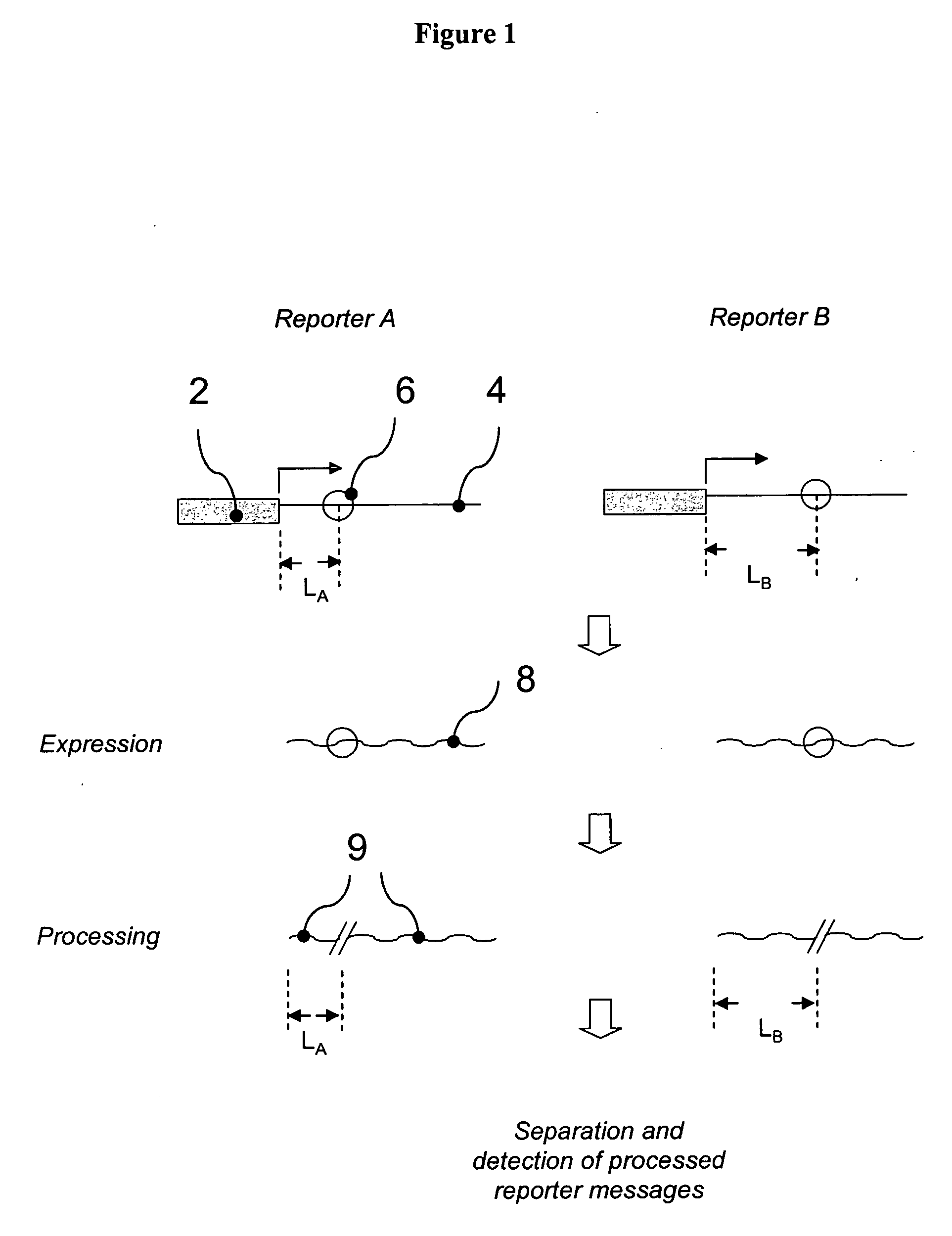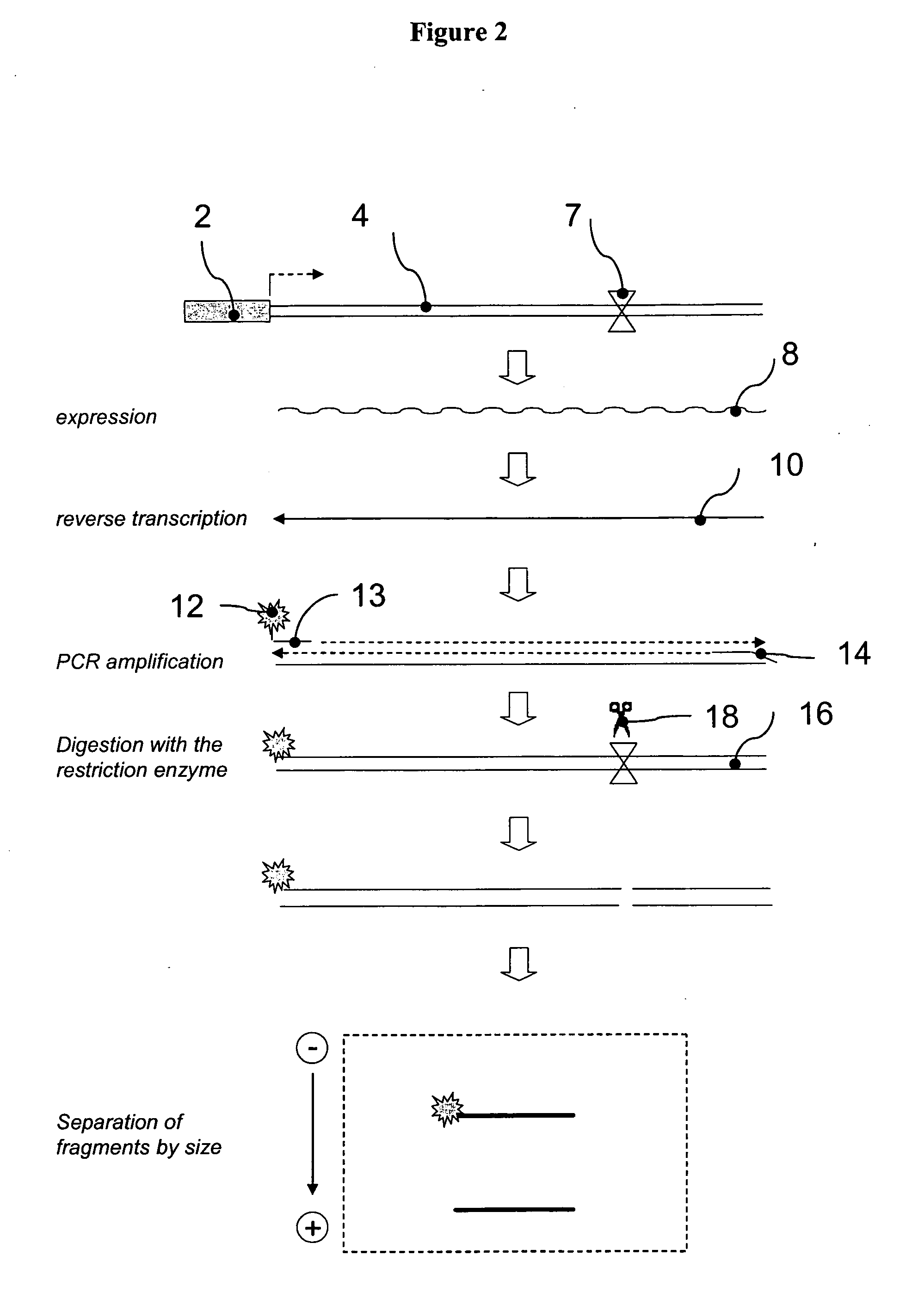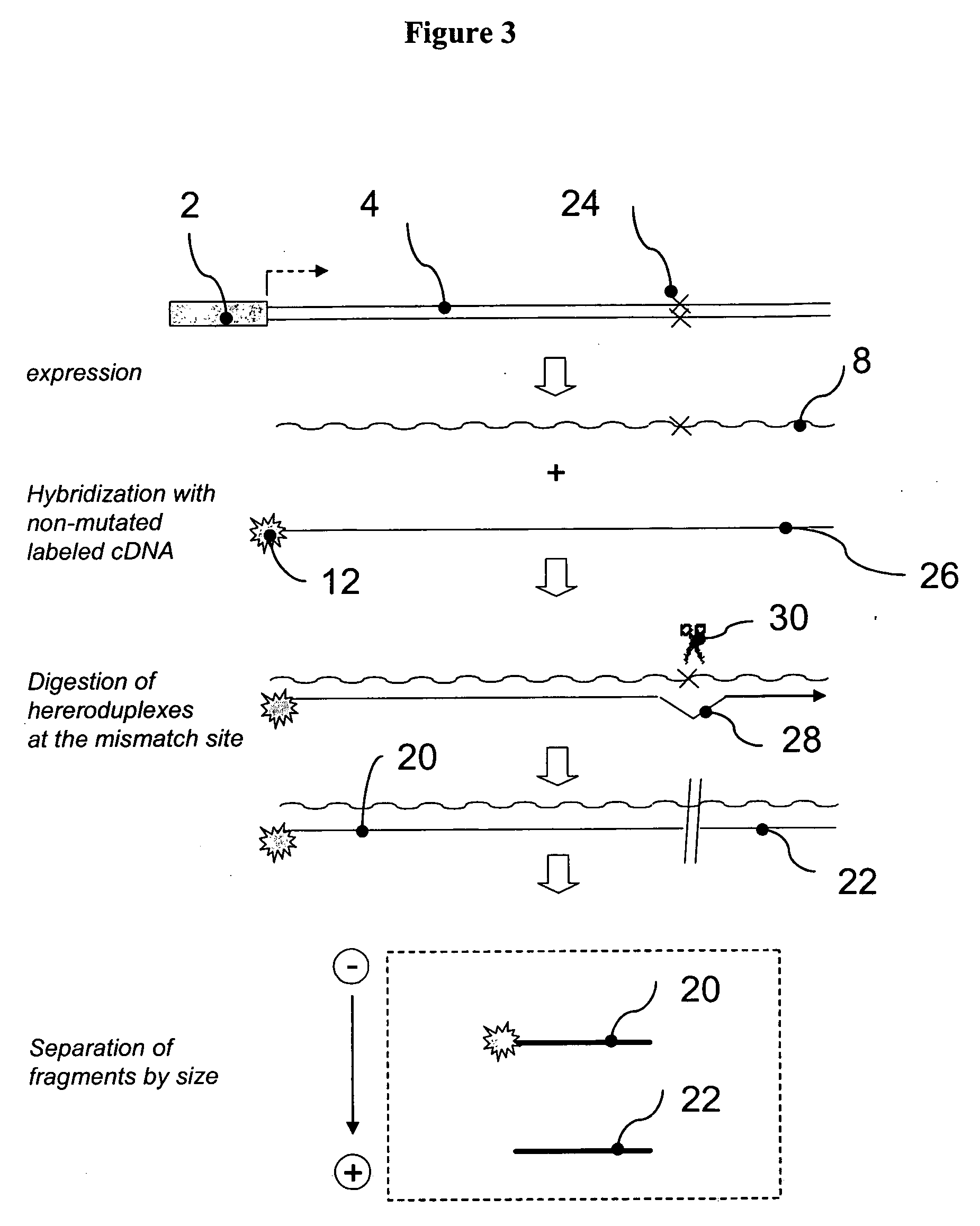Populations of reporter sequences and methods of their use
a reporter sequence and gene technology, applied in the field of polynucleotide reporter system, can solve the problems of cell death, transformation, metabolic diseases, and inability to detect reporter proteins, and achieve the effect of high uniformity of rtus
- Summary
- Abstract
- Description
- Claims
- Application Information
AI Technical Summary
Benefits of technology
Problems solved by technology
Method used
Image
Examples
example 1
6.1. Example 1
[0236] Materials and general procedures used in the examples that follow are described below.
[0237] Nucleic acid manipulations. Manipulations with nucleic acids were performed using standard molecular biology techniques known in the art, as described, for example, in Sambrook and Russell, Molecular Cloning: A Laboratory Manual, 3rd Ed. (Cold Spring Harbor Laboratory Press, Cold Spring Harbor, N.Y., 2001) and Current Protocols in Molecular Biology (Ausubel et al., eds., John Wiley & Sons, 1994-1998, Current Protocols, 1987-1994, as supplemented through July 2005 (Supplement 71)). Oligonucleotides were ordered from Integrated DNA Technologies (Coralville, Iowa, USA).
[0238] Cells. HEK293, 239, HCT116, SW480, HepG2 and MDA-MBA-231 cells were maintained on DME media (Invitrogen, Carlsbad, Calif., USA) supplemented with 10% FBS (HyClone, Logan, Utah, USA) and antibiotics. Human recombinant TNFα and IL-1β were purchased from Roche (Roche Diagnostics, Mannheim, Germany). Eto...
example 2
6.2. Example 2
[0246] This example demonstrates the construction of several individual RTUs for assessing multiple transcription factor activities. In particular, this example demonstrates the use of a secreted alkali phosphatase (SEAP) gene sequence to prepare 32 reporter sequences each having a HpaI endonuclease cleavage site processing tag located at a position that is different from the processing tag positions in the other reporter sequences.
[0247] pSEAP2-control plasmid vector that comprises SEAP gene was purchased from Clontech (Palo Alto, Calif., USA). The HpaI endonuclease cleavage sites were created at various positions of the transcribed region of the SEAP gene using PCR based in vitro site directed mutagenesis. Briefly, a set of 32 pairs of self-complementary oligonucleotide primers was synthesized, wherein each individual pair of primers comprises sequence homologous to distinct region of the SEAP gene interrupted by the HpaI cleavage site. To produce each individual Hp...
example 3
6.3. Example 3
[0248] This example demonstrates the preparation of a population of distinguishable RTUs having comparable transcription efficiencies.
[0249] The 32 reporter sequences described in the previous example were sub-cloned into a plasmid with a constitutive, simian virus 40 derived, SV40 promoter. The resulting RTU library (termed SV40-RTU) comprised 32 individual reporter constructs, wherein each construct comprises an identical SV40 promoter operatively linked to a reporter sequence with differentially positioned HpaI processing tag (FIG. 12A). An equimolar mixture of the individual SV40-RTUs was transiently transfected into human kidney epithelial HEK293 cells as described in Section 6.1 above. The following day, total cellular RNA was isolated, as described in Section 6.1 above, and samples containing 5 μg of total RNA were treated with DNAse I for one hour at 37° C. followed by incubation at 70° C. for 15 min, to inactivate residual DNAse activity. One ug of the DNAse-...
PUM
| Property | Measurement | Unit |
|---|---|---|
| Volume | aaaaa | aaaaa |
| Volume | aaaaa | aaaaa |
| Volume | aaaaa | aaaaa |
Abstract
Description
Claims
Application Information
 Login to View More
Login to View More - R&D
- Intellectual Property
- Life Sciences
- Materials
- Tech Scout
- Unparalleled Data Quality
- Higher Quality Content
- 60% Fewer Hallucinations
Browse by: Latest US Patents, China's latest patents, Technical Efficacy Thesaurus, Application Domain, Technology Topic, Popular Technical Reports.
© 2025 PatSnap. All rights reserved.Legal|Privacy policy|Modern Slavery Act Transparency Statement|Sitemap|About US| Contact US: help@patsnap.com



